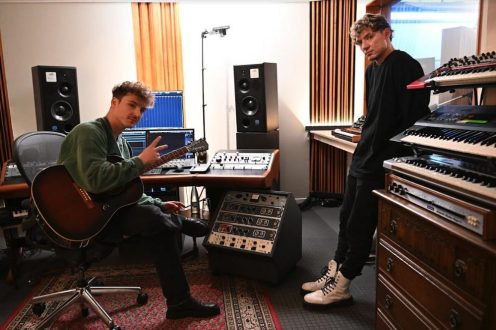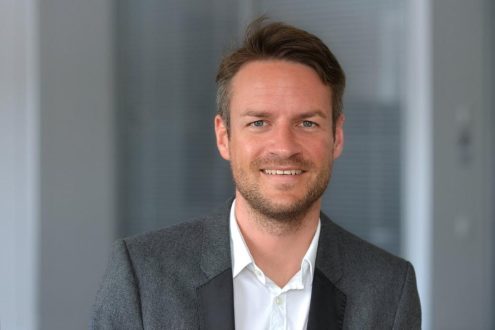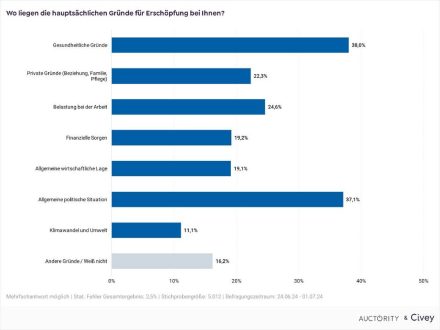Europeans more worried about waste and corruption than size of the EU budget, according to new ECFR polling
- Major new survey of Europe’s so-called ‘frugal’ countries reveals mixed feelings towards the EU’s proposed €750bn COVID-19 recovery fund – with greatest concerns about the package in Finland, Austria and the Netherlands.
- Concern with the dispensation of EU funds centres on waste and corruption linked to how the recipient countries spend funds from the recovery fund.
- Citizens of the ‘frugal’ countries fear that their influence is waning – with almost half of those polled in Finland, and considerable minorities in Austria, Denmark, Sweden, and the Netherlands, believing that their country’s standing in the EU has declined in recent years.
- The report’s authors, Susi Dennison and Pawel Zerka, call on the ‘frugal’ governments to recognise this shift and “recast themselves as drivers of the European engine”.
Many Europeans believe their country’s influence in the European Union (EU) has decreased, according to a major new polling report published today by the pan-European think tank European Council on Foreign Relations (ECFR) in cooperation with Danish Tænketanken EUROPA, with worries about waste and corruption stirring doubts about the direction of the EU-27.
ECFR’s new report, ‘The transformative five: A new role for the frugal states after the EU recovery deal’, draws on polling from five frugal EU member states – Austria, Denmark, Finland, Netherlands, and Sweden – as well as France, Germany and Poland.
The polling explores attitudes towards the EU in Europe’s so-called ‘frugal’ countries – which have been traditionally hostile to increasing the size of the EU budget. It shows that concerns surrounding the EU’s COVID-19 recovery package are not exclusively confined to its cost, but, rather, to the behaviour of recipient countries. The polling suggests these fears are alienating some citizens, at a time of collective need, and impacting how they view the European project.
ECFR’s data finds that, while there is still strong support for the EU, its core principles, and leadership on global issues (including trade, defence and international security), over 40% of those surveyed in the eight countries have concerns about their country’s influence within the bloc – with almost half of citizens in Finland (48%), and considerable minorities in Sweden (43%), the Netherlands (43%), Austria (38%), and Denmark (38%), holding the view that their country’s standing in the EU has declined in the last 2-3 years. Of the eight countries polled by ECFR, Germany is the only one where more people believe the influence of their country has increased (39%) rather than decreased (35%). The prevailing opinion in Poland (51%) and in France (37%) is that their country’s influence has declined.
The report’s authors, Susi Dennison and Pawel Zerka, believe this presents a delicate balance for leading EU countries, as they shape the spending decisions for the EU budget and recovery package. They argue that, while many citizens see a “wayward drift” in the direction of the European project, there is an opportunity, off the back of this new package, for national leaders of the ‚frugal‘ countries to “recast themselves as drivers of the EU engine”, and to take the lead on how these funds are spent within the bloc.
Commenting on ECFR’s new polling report, author and senior fellow, Susi Dennison, said:
“This polling reveals that the public in so-called ‘frugal’ countries are most concerned about the misuse of funds by net beneficiaries of the EU budget, and that there’s a widespread belief that their leaders are not able to shape the future direction of the EU.
Allegations of corruption and repeated clashes with the EU over “rule of law” issues have undermined trust, at a time of collective need, and stirred fears that the EU is no longer a club that shares a commitment to democratic values and accountability.
Rather than falling into the British trap of blaming Brussels, the leaders of the ‘frugals’ should take heart that there is an appetite among their countries for them to lead in Europe on the key issues affecting the bloc – from cooperation on terrorism, security and justice to export promotion.”
Co-author and policy fellow, Pawel Zerka, added:
“With the recovery fund now agreed, an opportunity has emerged for the “frugals” to recast themselves as drivers of the EU engine – by leading discussion on how EU funds should be spent, and by collectively building a Europe that corresponds to the ambitions of their citizens.
One powerful first step in this direction would be for these countries to insist on the defence of democracy and rule of law, and the fight against corruption, given the risk that the mechanisms that the EU currently has at its disposal could prove either insufficient or politically difficult to use.”
ECFR’s director, Mark Leonard, said:
“Instead of promoting a negative agenda of a minimum EU, focused on the market and not much else, Austria, Finland, Denmark, the Netherlands and Sweden should use the recovery package as a springboard to influence how the money is spent across the bloc, and as an opportunity to push the EU forward on issues such as rule of law, digital, green and security.
This would unlock vital resources within the EU and reassure citizens that their country’s voice is being heard in Brussels.”
Key findings of ECFR’s polling include:
- The ‚frugality‘ charge, which has been applied to the governments of Austria, Denmark, Finland, Netherlands, and Sweden, is misplaced. ECFR’s polling found that almost 8 out of 10 respondents from these countries rejected the statement “the EU spends too much money”. Among the ‘frugal’ countries, Finland (24%) and the Netherlands (24%) are the countries where such a concern is strongest; it is shared by 22% in Denmark, 20% in Sweden, and 20% in Austria. Beyond the so-called ‘frugals’, just 10% in Poland and 17% in France subscribe to this statement. If this is the measure of ‘frugality’, then it is actually strongest in Germany – where still it is shared by only one in four respondents (26%).
- The primary concern of citizens, in the context of EU funding, is waste and corruption in recipient countries. 38% of those polled in the ‘Frugal Five’ identified this as an issue. This concern is most pronounced in Austria, where almost half of respondents (48%) agreed such a risk exists; this belief is also shared by large minorities in Sweden (38%), and the Netherlands (38%). This was also identified as the leading issue in the other countries polled, with 37% in Germany, 33% in France, and 30% in Poland agreeing that there exists such a risk.
- There is a strong attachment to the core benefits of EU membership. When asked on what areas the EU contributes most to the promotion of their country’s interests, respondents in the five ‚frugal‘ countries selected in this order: the freedom to live and work in other countries (32%); the benefits of the single market (27%); co-operation on security, justice and terrorism (24%); protection from war and conflict (20%); and promotion of exports (20%). This suggests that the value of EU membership in the polled countries – contrary to stereotypes – goes well beyond economics. This response is broadly replicated in France, Germany and Poland. ‚Tackling climate change’ also scores highly and ranks fourth in the list among the ‚Weimar‘ states – with around 1 in 5 respondents appreciative of this work.
- Overall, there are mixed feelings towards the EU’s agreed recovery package. When asked what their chief emotion was, with regards the EU’s recovery package, respondents in the ‘frugal’ countries cited “optimism” (22%) and worry (22%) in equal measure. But negative emotions – worry, anger, and frustration – prevailed over positive ones, accounting for 40% of responses. Those having the most negative feelings about the package are found in Finland (50%), the Netherlands (43%), and Austria (42%). As a matter of comparison, just 17% of Poles – as well as 35% of French and 37% of Germans – hold negative feelings about the recovery deal.
- Citizens are worried about the direction of the EU and their country’s influence within the bloc. As noted, above, over 4 in 10 respondents to ECFR’s survey in the five ‘frugal’ countries indicated that they believe the influence of their country in the EU has “decreased” in recent years. This feeling is shared widely in Finland (48%), Netherlands (43%), and Sweden (43%), as well as Denmark (38%) and Austria (38%). This sentiment is shared by respondents in France (37%) and Poland (51%). However, in Germany, the plurality view is that their country’s influence has “increased” in last 2-3 years (39%).
- Unsurprisingly, this viewpoint is primarily held by those aligned to Eurosceptic parties. For example, in Sweden, 61% of Sweden Democrat supporters believe their country’s influence has waned. This is also evident in Denmark, among supporters of the New Right (68%); in Finland, with the True Finns (70%); in the Netherlands, with PVV (56%); and in Austria, with FPO (57%). This position is also apparent in the other countries surveyed by ECFR. For example: 56% of AfD supporters in Germany, 49% of those of Rassemblement National in France, and 51% of the far-right Konfederacja in Poland, believe their country’s influence in the EU has declined.
NOTES FOR EDITORS
AUTHORS
- Susi Dennison is a senior fellow and director of the ‘European Power’ programme at the European Council on Foreign Relations. You can view her profile, and previous publications, here.
- Pawel Zerka is a policy fellow and contributor to the ‘Rethink: Europe Initiative’ at the European Council on Foreign Relations. You can view his profile, and previous publications, here.
INTERVIEWS
- Susi Dennison and Pawel Zerka are available for interview with interested broadcast, digital and print media. Please contact Ana Ramic, Head of Communications at ECFR, on E: ana.ramic@ecfr.eu / T: +49 (0) 151 – 65114216 to arrange.
POLLING
- ECFR and Tænketanken EUROPA commissioned polling from Datapraxis and Dynata in Austria (n = 1004), Denmark (n = 997), Finland (n = 1000), France (n = 1000), Germany (n = 1023) , Netherlands (n = 1000), Poland (n = 1000) and Sweden (n = 1000) in the second half of October 2020.
ABOUT Tænketanken EUROPA:
Think Tank EUROPA is an independent Copenhagen-based think tank focusing on Europe. We strive to ensure that European affairs with a Danish perspective become more visible in national policy debates.
The European Council on Foreign Relations (ECFR) is an award-winning, pan-European think-tank. Launched in October 2007, its objective is to conduct research and promote informed debate across Europe on the development of coherent and effective European values-based foreign policy. ECFR is an independent charity and funded from a variety of sources. For more details, please visit: www.ecfr.eu/about/
European Council on Foreign Relations (ECFR)
Unter den Linden 17
10117 Berlin
Telefon: +49 (30) 32505100
http://www.ecfr.eu
![]()




